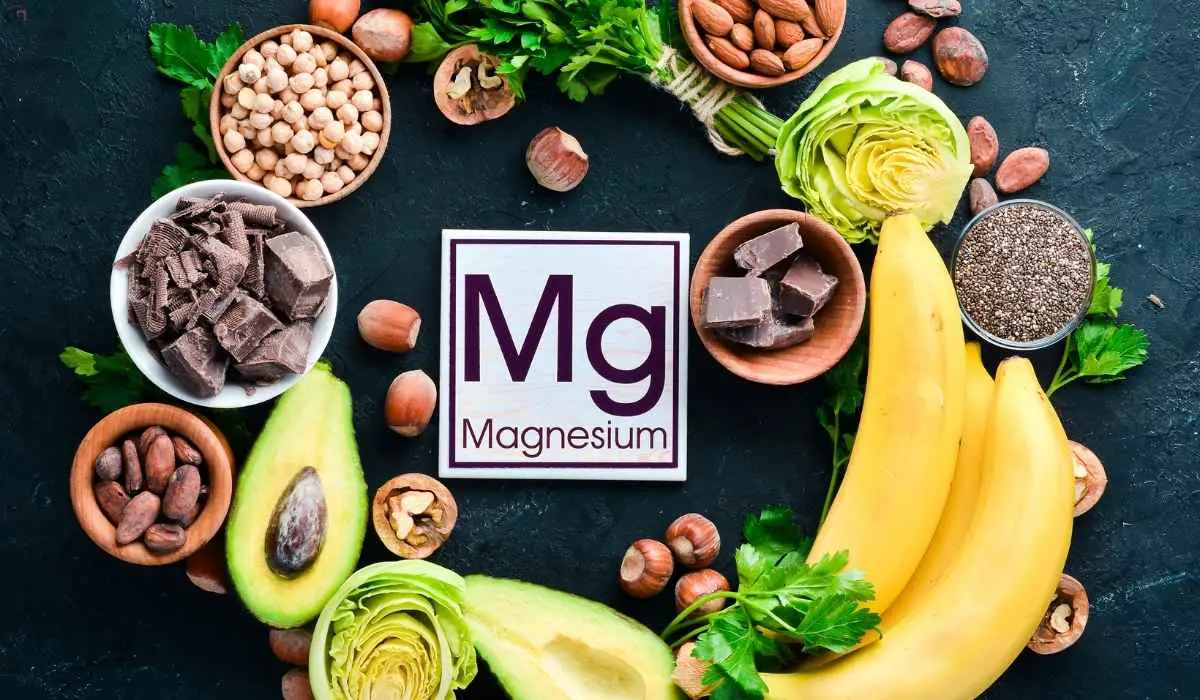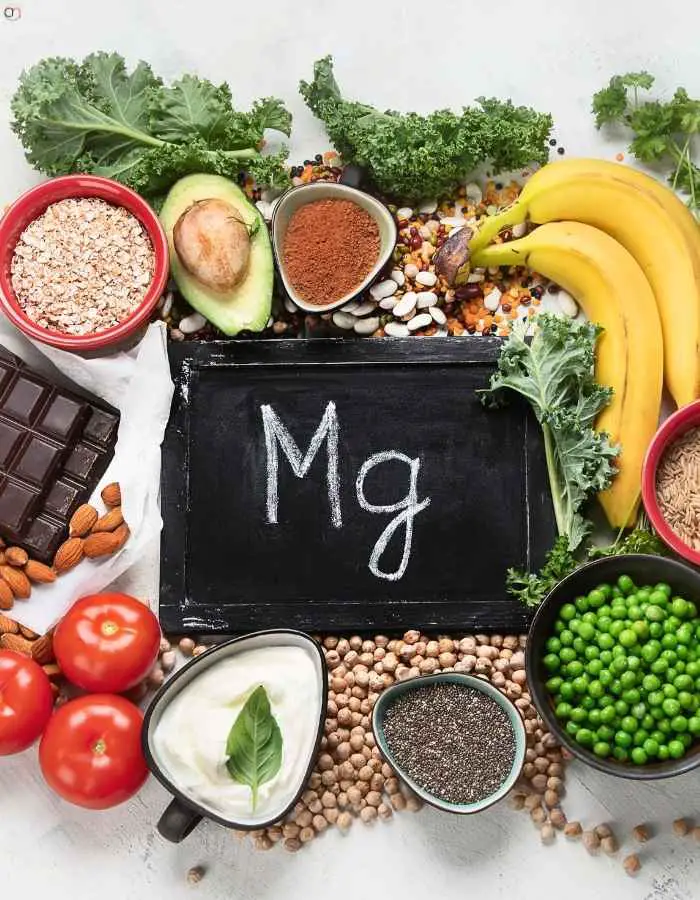20 Magnesium Rich Foods

Feeling low on energy, stressed, or dealing with muscle cramps? You might be missing out on magnesium—a mighty mineral that plays a key role in everything from nerve function to heart health. The good news?
You can boost your intake naturally through delicious, everyday foods.
In this blog, we’ll explore some of the top Magnesium Rich Foods to add to your plate and how they help support your overall wellness. Let’s get into the good stuff your body will thank you for!
Top Benefits of Magnesium:
Magnesium is an essential mineral that plays a vital role in maintaining overall health and wellness. One of its primary benefits is supporting muscle and nerve function, helping to prevent cramps and maintain proper muscle relaxation.
It also contributes to heart health by regulating heartbeat and blood pressure. Magnesium is crucial for energy production, as it helps convert food into usable energy, keeping you energized throughout the day.
Additionally, magnesium supports bone health by aiding calcium absorption, which strengthens bones and reduces the risk of osteoporosis. It also promotes better sleep and helps manage stress by calming the nervous system. Furthermore, magnesium plays a role in regulating blood sugar levels, making it important for metabolic health.
Because magnesium is involved in over 300 biochemical reactions in the body, maintaining adequate levels through diet or supplements can lead to improved mood, reduced inflammation, and overall better physical performance. Incorporating magnesium-rich foods is a smart step toward a healthier lifestyle.
Top 20 Magnesium Rich Foods:
Magnesium is a powerhouse mineral essential for many bodily functions, from muscle health to energy production. Adding magnesium-rich foods to your diet is a delicious and natural way to boost your intake and support overall wellness.
-
Spinach
-
Swiss chard
-
Kale
-
Pumpkin seeds
-
Almonds
-
Cashews
-
Peanuts
-
Black beans
-
Lentils
-
Quinoa
-
Brown rice
-
Oats
-
Avocado
-
Bananas
-
Dark chocolate (70% cocoa or higher)
-
Tofu
-
Salmon
-
Mackerel
-
Edamame
-
Yogurt
Including these nutrient-dense foods regularly can help you maintain healthy magnesium levels and enjoy the many benefits this mineral offers.
How to Add Magnesium to Your Diet:
Boosting your magnesium intake can be simple and tasty with a few easy changes to your meals. Start by incorporating more leafy greens like spinach and kale into salads, smoothies, or sautés. Snack on a handful of nuts and seeds such as almonds, cashews, or pumpkin seeds for a crunchy, magnesium-rich treat.
Swap refined grains for whole grains like quinoa, brown rice, or oats to naturally increase magnesium. Include legumes like black beans and lentils in soups, stews, or side dishes. Don’t forget to enjoy magnesium-packed fruits like bananas and avocados for added nutrition.
If you prefer animal-based sources, add fatty fish like salmon or mackerel to your meals. Finally, consider magnesium-fortified foods or supplements if your diet lacks variety—but always consult a healthcare professional before starting supplements.
By making these simple swaps, you can easily support your body’s magnesium needs every day!
How Much Magnesium Do You Need?
The recommended daily magnesium intake varies by age, gender, and life stage. For adult men, the general guideline is about 400-420 mg per day, while adult women typically need around 310-320 mg per day. Pregnant and breastfeeding women require slightly higher amounts, usually between 350-360 mg daily to support both their health and their baby’s development.
Children’s magnesium needs differ by age, starting from about 80 mg per day for toddlers and increasing as they grow. It’s important to meet these daily requirements through a balanced diet rich in magnesium-containing foods to support muscle function, energy production, and overall wellness.
If you’re unsure about your magnesium intake or considering supplements, it’s always best to consult with a healthcare provider to tailor recommendations to your individual needs.
Magnesium Absorption Tips
Getting enough magnesium is important, but absorbing it efficiently is just as key. Here are some tips to help your body make the most of the magnesium you consume:
-
Eat Magnesium with Vitamin D: Vitamin D enhances magnesium absorption, so include foods rich in both or get some sunlight to boost vitamin D naturally.
-
Balance Calcium Intake: Calcium and magnesium work together, but too much calcium at once can interfere with magnesium absorption. Aim for a balanced intake spread throughout the day.
-
Limit Excessive Alcohol and Caffeine: These can reduce magnesium absorption and increase its excretion, so enjoy them in moderation.
-
Avoid High Sugar and Processed Foods: Diets high in sugar and processed foods may lower magnesium levels and impair absorption.
-
Include Fiber-Rich Foods: Whole grains, nuts, seeds, and vegetables help improve digestion and magnesium uptake.
-
Stay Hydrated: Proper hydration supports overall nutrient absorption, including magnesium.
Following these tips can help you maximize magnesium’s benefits for your health!
When to Consider Supplements:
Key Take Away:
Magnesium Rich Foods is essential for many body functions, and getting enough through a balanced diet supports energy, muscle health, and overall wellness. Incorporate magnesium-rich foods like leafy greens, nuts, and whole grains to naturally boost your intake and feel your best every day.
Love these tips? Save this article on Pinterest, share it with friends, and follow us for more health-boosting ideas!
Get Next: 20 Graduation Party Foods
FAQs:
1. What are the best Magnesium Rich Foods?
Leafy greens, nuts, seeds, whole grains, legumes, and certain fish like salmon are excellent sources of magnesium.
2. How much magnesium do adults need daily?
Adult men typically need 400-420 mg, while adult women require 310-320 mg daily, with slightly higher needs during pregnancy and breastfeeding.
3. Can magnesium supplements cause side effects?
In high doses, magnesium supplements may cause digestive issues like diarrhea. It’s best to take them under medical guidance.
4. Does magnesium help with muscle cramps?
Yes, magnesium plays a key role in muscle relaxation and can help reduce cramps and spasms.
5. Can I get enough magnesium from diet alone?
Most people can meet their magnesium needs through a balanced diet rich in magnesium-containing foods.
6. What affects magnesium absorption?
Vitamin D helps absorption, while excessive calcium, alcohol, caffeine, and processed foods can reduce it.






